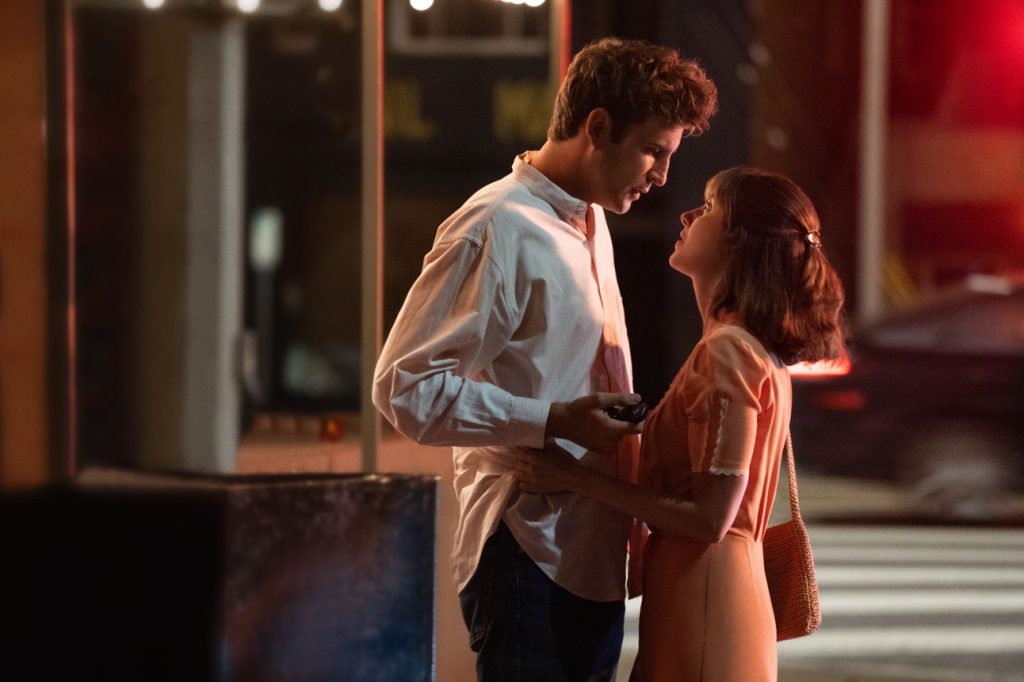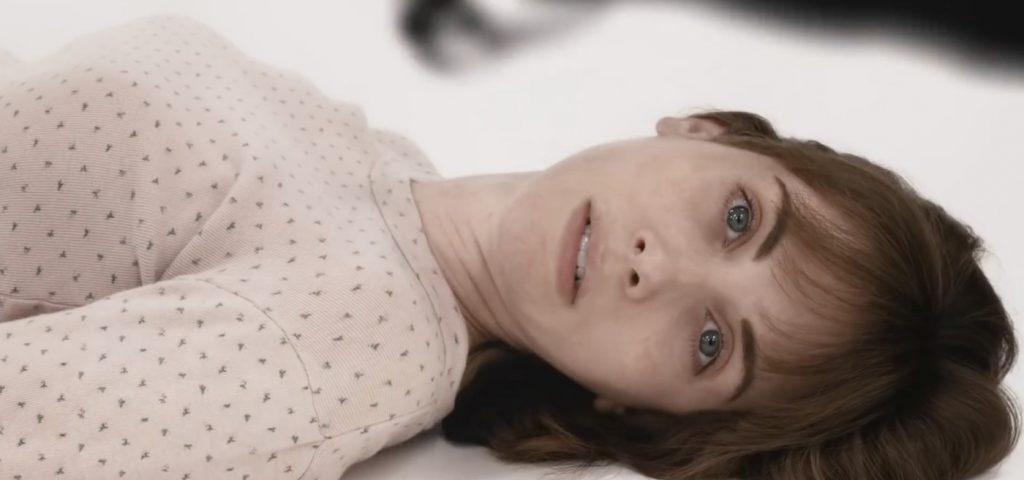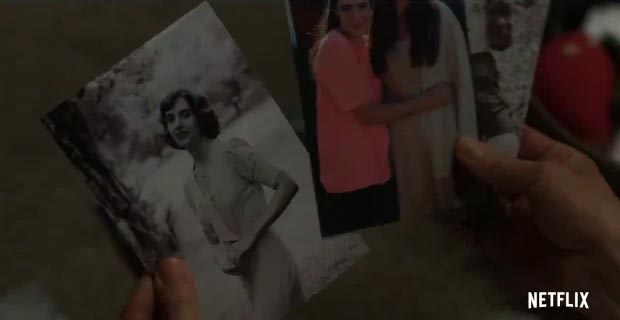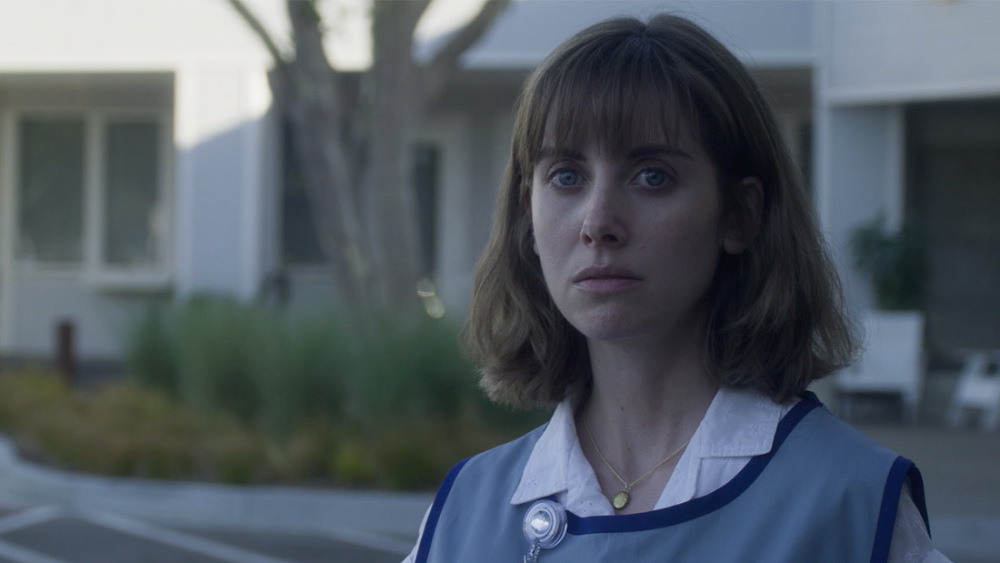“Is this the real life? Is this just fantasy?” If the surreal ending of Jeff Baena’s latest offering doesn’t leave you quoting Bohemian Rhapsody, I wonder what will. Because, well, what even happened?! ‘Horse Girl‘ is certainly one of the most haunting and bizarre original features I have watched in recent years. It portrays an unusual and empathetic take on mental illness that manages to leave a lingering sense of melancholy as the end credits roll.
The film puts us in Sarah’s shoes, as her dreams and reality bleed into one. You’re with her, and you want to help her. But you can’t. It becomes increasingly obscure and abstract as it progresses, leaving the viewers fascinated and devastated simultaneously as it reaches its perplexing bittersweet conclusion. But the question is, what’s real and what’s not? And more importantly, is it even possible to explain the ending? Well, we’re sure going to try.
Horse Girl Plot Summary

‘Horse Girl’ centers around Sarah, a mild-mannered, socially awkward introvert who works at a crafts store. She loves her job and spends her spare time with her childhood horse, Willow, or watching her favorite series, ‘Purgatory.’ The film leaves you feeling sympathetic towards Sarah long before she begins to lose herself. You see her loneliness, and you see her warmth, and you want her to be happy. When her roommate Nikki introduces her to Darren, you think this may be the start of something new for her.
Well, it is. But not at all in the ways you could predict. While she instantly hits it off with Darren, strange things begin to occur to her. What starts out as sleep-walking and nosebleeds turns into full-fledged delusions as Sarah becomes increasingly paranoid. Her bizarre dreams begin to merge into her reality. She experiences a loss of time and finds herself in unexpected places. Gradually, we learn about the history of mental illness in her family. And the only logical conclusion seems to be that Sarah is losing her mind. However, Sarah begins to believe that she is being abducted by aliens. That she is, in fact, a clone of her grandmother. Until, of course, the ending of the film.
Horse Girl Ending Explained

The final half an hour of the film is oddly poetic and visually stunning, yet heartbreaking to watch. The climax of the film begins after Sarah’s date with Darren. We watch the crumbling effect it has on her, and she begins to lose herself completely. In one of the scenes, Sarah finds herself naked in the store and later believes she can hear the future on the phone. Joan helps her and sends her to a mental health care facility, where, despite being there for three days, Sarah believes she only spent a night.
The final moments of the film are jarringly silent and haunting to watch as we see Sarah’s dreamscape and her reality completely merging into one. Sarah walks out of the facility, while we also see her watching herself from the window of her room. She goes to her house, and finds the woman from her dreams as her roommate Nikki. She walks out of her window and ends up at the crafts store from where she steals peach fabric.
Sarah covers everything with the fabric, making herself a bodysuit for protection. She then opens the doorway to access the dreamscape/parallel universe. Here, she walks through the white space from her dream (reality?), sees shadowy alien-like figures with humans, and a ramp over the ocean, amongst other things. When she wakes up, she finds herself in the facility, next to the woman from her dream. In a conversation that follows, the woman reveals that she is from 1995. Sarah suddenly realizes what’s happening to her and that she is not really a clone but her grandmother from another time.
The final moments of the film have Sarah walking out of the facility. She then dresses up like her grandmother, curling her hair and wearing her dress. She steals her childhood horse, Willow, and walks to the forest with her. There, she lies in the grass as a UFO emerges. She smiles, and lets the UFO take her. The film ends with her floating away.
Mental Illness or Alien Abduction?

What really happened to Sarah? The more logical explanation is obviously that the final scene was another delusion of her. The film has strong evidence to back this interpretation. We know her that Sarah’s grandmother, Helen, had some sort of schizophrenia, and that she talked to the walls and believed that she was from the future. While Sarah’s mother suffered from depression and committed suicide. As the film comes to its conclusion, Sarah begins to believe that she is her grandmother’s clone, only to realize that she is actually her grandmother.
This interpretation also works on a metaphorical level. Sarah, in a way, does become her grandmother. They are similar not just physically, but mentally as well, both being victims to delusions and paranoia. Here, it is important to note that Alison Brie (who also co-wrote the script) was influenced by her grandmother’s own battle with schizophrenia, and Brie’s own fear of inheriting it. The film’s ending, then, becomes an abstraction of these experiences and thoughts. However, the film’s ending is left ambiguous for a reason.
The other obvious interpretation of the film’s ending is that Sarah was actually being abducted and taken to different times, which is why she finds herself stuck in a time loop. This explanation could explain her time loss, the individuals she sees in her dreams, as well as her random bruises. But then, this can also be backed up with her delusions and sleep-walking.
The filmmakers have intentionally offered multiple interpretations of the ending. In an interview with Vulture, Brie revealed, “Our hope is that people have myriad interpretations of the movie[’s ending]”. She then went on to say, “We certainly have a theory about what we think is going on, but I’d venture to say that even Baena and I have slightly different takes about what the truth is; I’m a bit more open to interpretation than he is.”
Along with this, Brie also backed up the abduction conclusion, stating that she does believe in aliens, and is a “low-key conspiracy theorist”. The team even did Reddit based research on abductions and time-loss, and she expects several theories to emerge explaining what really happens to Sarah towards the end. She also told Vulture that since ‘Horse Girl’ is about a woman with mental illness, “what if something real started happening to her? What is something really wild, really scary, started happening and she didn’t have the ability to know whether it was real or not?”.
The truth is one could never really explain what happens to Sarah towards the end. While mental illness seems to be a more logical explanation, alien abduction could also be a possibility. The filmmakers carefully and intentionally left the ending ambiguous. Its surreality gives the viewers the power to interpret and choose for themselves whether or not Sarah gets her happy ending.
Read More: Horse Girl Review


You must be logged in to post a comment.